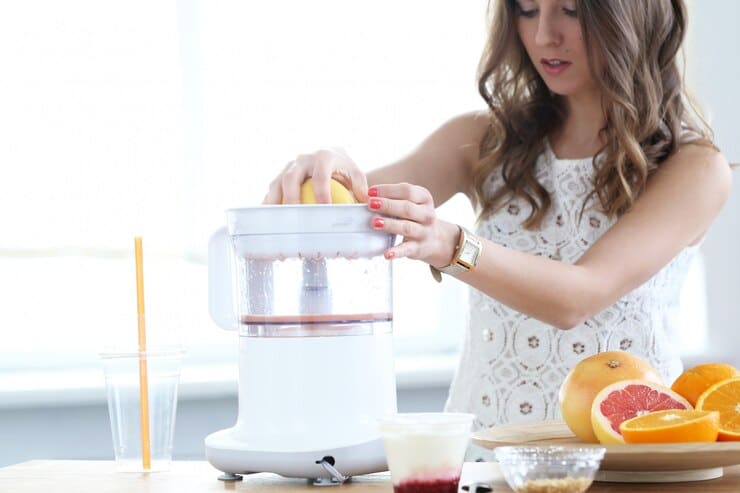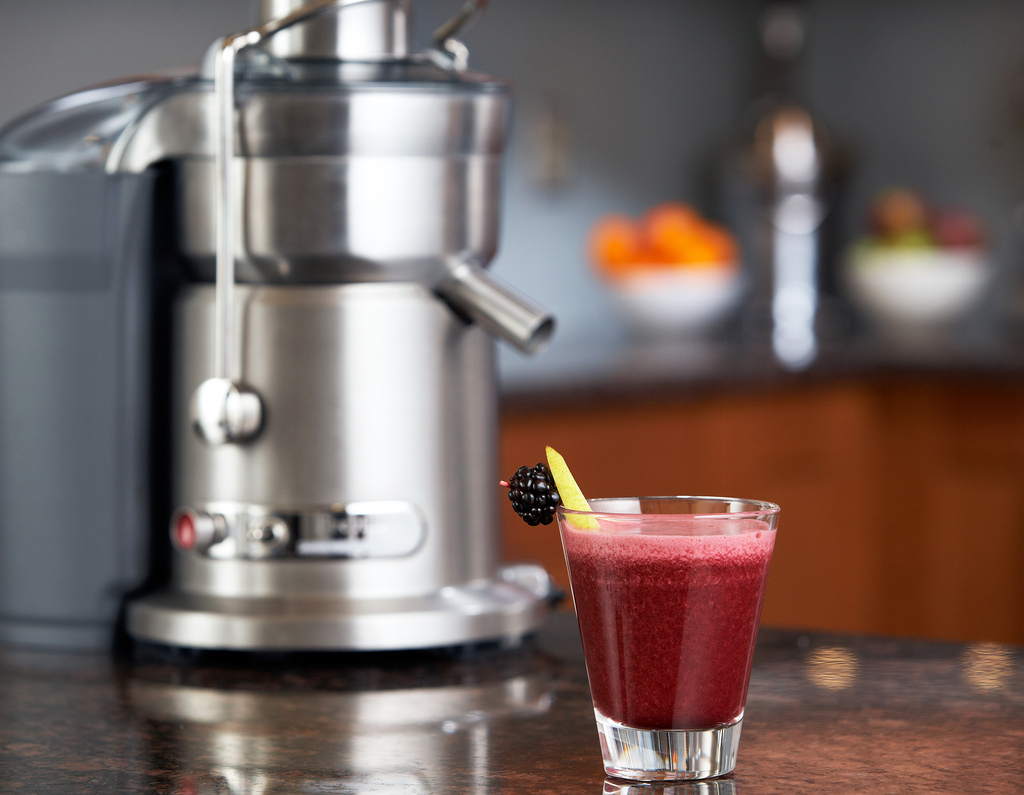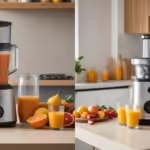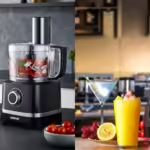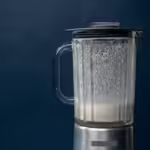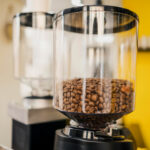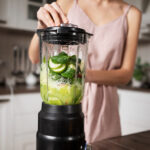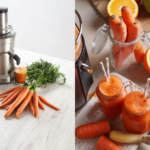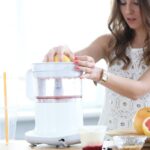Before buying any juicer, the question of what to look for in a juicer can irritate you repeatedly. In this article, we will share the key points that can help you in buying a juicer machine. Let’s begin the!
In the world of juicing, there are three types of juicer machines Centrifugal Juicer, Masticating Juicer and Citrus Juicer.
Centrifugal Juicer is also called fast machine due to high-speed spinning, The spinning speed of centrifugal juicers typically ranges between 3,000 to 16,000 revolutions per minute (RPM). These juicers use high-speed spinning blades to quickly extract juice from fruits and vegetables.
Masticating Juicer is also known as “Slow Juicers” or “Cold Press Juicers”. In fast juicer machines due to heat generation fruits and vegetable nutrients are not preserved. To keep fruits and vegetable nutrients, slow juicer or masticating machines are designed with slower, more deliberate crushing and squeezing concepts.
Citrus Juicers are specially designed for citrus fruits like oranges, lemons and grapefruits
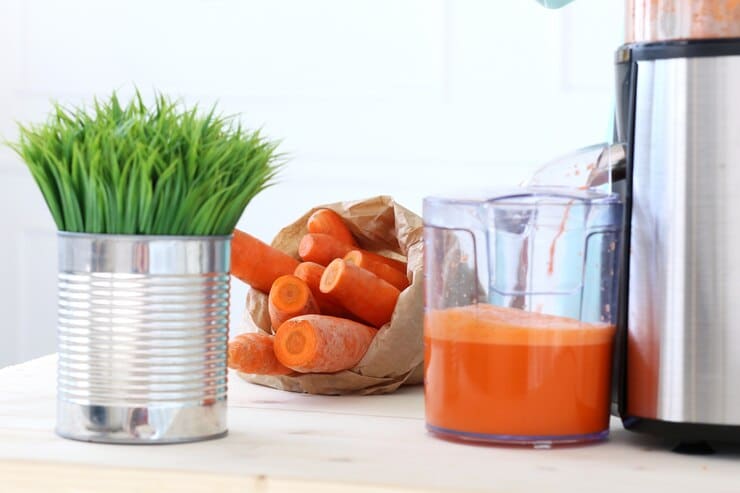
What to Look For in a Juicer
- Purpose and Frequency
- Produce Compatibility
- Motor Power and Efficiency
- Juicing Mechanism
- Design and Space
- Ease of Use and Cleaning
- Safety Features
- User Experience
- Reviews and Budget
1-Purpose and Frequency
Purpose and frequency considerations for juicing entail defining why you juice—be it for health, culinary experimentation, or periodic detoxes—aligning with how often you juice. This assessment guides the selection of a juicer that suits your needs, whether for daily health routines, occasional use, or batch juicing sessions.
2-Produce Compatibility
Produce compatibility in juicers refers to their ability to handle various fruits, vegetables, and textures. Evaluating a juicer’s capability with soft, hard, or leafy greens ensures efficient extraction. Choosing a juicer that aligns with your preferred produce types guarantees optimal performance and nutrient retention in your juice
3-Motor Power and Efficiency
Motor power directly impacts a juicer’s performance, measured in wattage or RPM. Higher power often means better efficiency in juicing tougher produce. Understanding this correlation helps select a juicer with the right balance of power and efficiency, ensuring smoother operation and effective extraction of juice from various ingredients.
4-Juicing Mechanism
The juicing mechanism understanding is most important and dictates how fruits and veggies are processed within a juicer. Whether it’s through an auger in masticating juicers, gently crushing and squeezing, or blades in centrifugal juicers, rapidly slicing and extracting, this mechanism significantly influences juice quality, texture, and nutrient retention, impacting overall juicing performance.
5-Design and Space
Design and space are key points, especially for kitchen lovers. Therefore, what to look for in a juicer before buying, these two points should be kept in mind.
Considering design and space involves assessing a juicer’s size, footprint, and functionality in your kitchen. Choosing between compact or larger models depends on available countertop space and portability preferences. Finding a balance between aesthetics, functionality, and space utilization ensures seamless integration into your kitchen while meeting your juicing needs.
6-Ease of Use and Cleaning
Many people like to drink homemade juices but to difficulty in cleaning juicers make them lazy to use the juicer machine. The ease of assembly, disassembly, and cleaning process impacts user experience. Juicers with simple maintenance routines and dishwasher-friendly parts enhance convenience and encourage regular usage.
7-Safety Features
Safety features in juicers include mechanisms like overload protection and secure locking systems, ensuring safe operation. Components made from BPA-free materials also contribute to user safety. Prioritizing juicers with these features minimizes risks during use and guarantees a secure and worry-free juicing experience.
8-User experience
User experience encompasses noise levels, customization options like variable speed controls, and ease of pulp control. Quieter operation and adaptable settings cater to individual preferences, enhancing satisfaction. Considering these factors ensures a more enjoyable and personalized juicing process tailored to specific needs.
9-Reviews and Budget
Before purchasing a juicer, reviewing expert and user opinions provides valuable insights into performance, durability, and user satisfaction. Comparing various models within your budget helps in making an informed decision, considering not just the initial cost but also long-term expenses like maintenance and accessories.
Key Takeaways
Consider all the above 9 points before purchasing the juicer and it can solve your question of what to look for in a juicer.
If you like this post, please comment it will help to write topics related to juicers, blenders and kitchen gadgets
Anticipated Questions
What is the best juicer for daily use?
For daily use, consider a masticating juicer like Omega J8006HDS or Breville JE98XL centrifugal juicer. Both balance efficiency, ease, and nutrient retention for regular juicing needs.
What is the best juicer to buy for a juicing diet?
For a juicing diet, opt for a masticating juicer such as the Omega NC900HDC or the Hurom H-AA Slow Juicer, ideal for preserving nutrients in leafy greens and produce.
What are your tips for choosing a juicer?
Consider your juicing habits, produce preferences, motor power, cleaning ease, and user reviews. Prioritize features aligning with your needs for an optimal juicing experience.
Useful Blog:
What Are The Types of Juicer Machines? The Complete Guide
Best Rated Commercial Cold Press Juicer Machines
